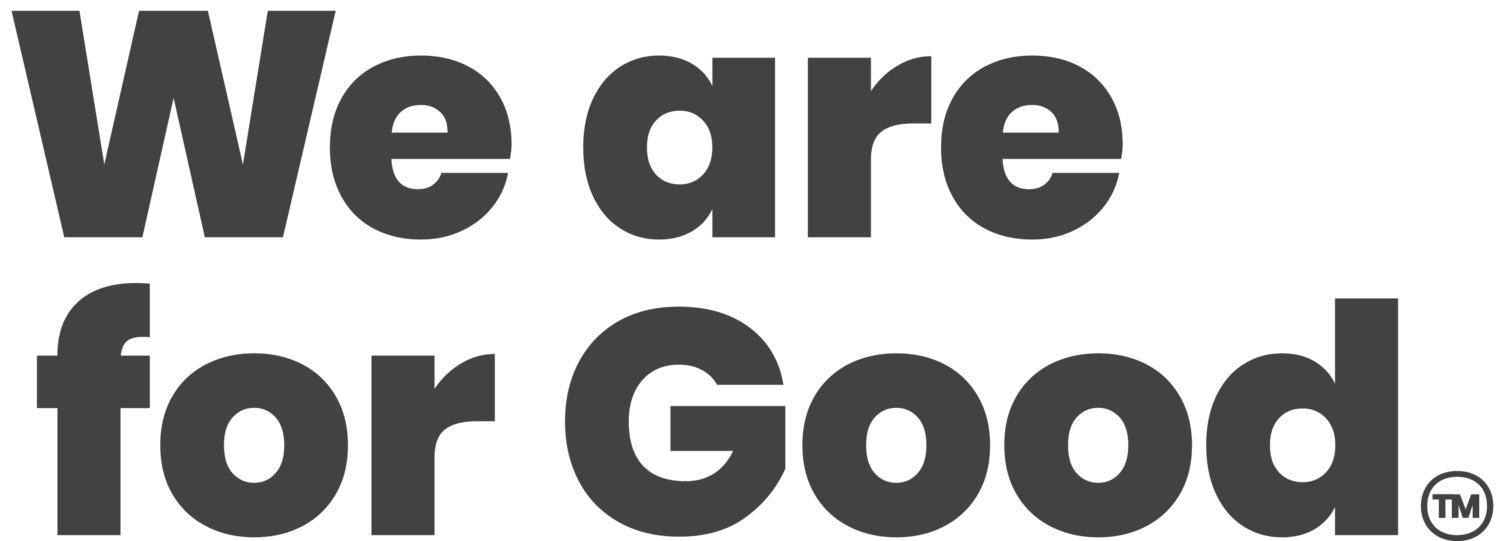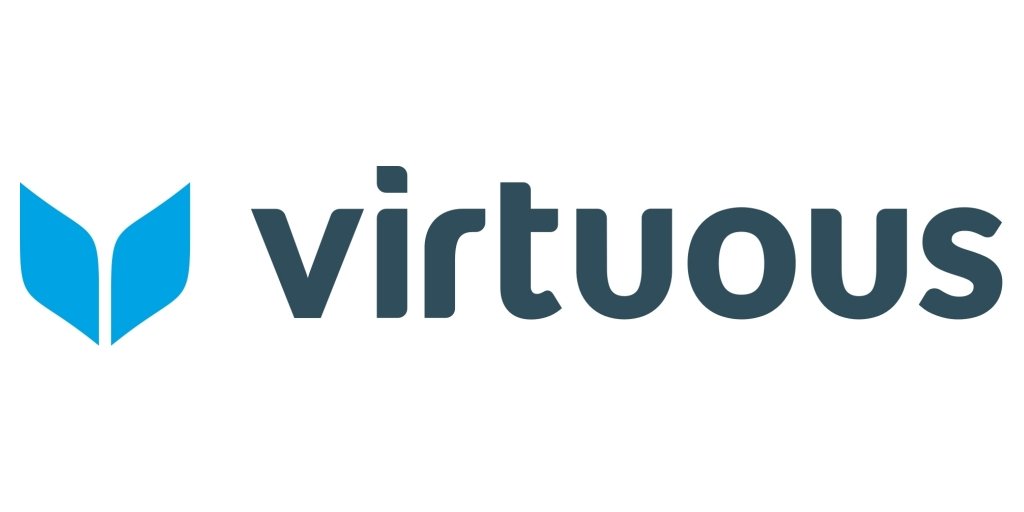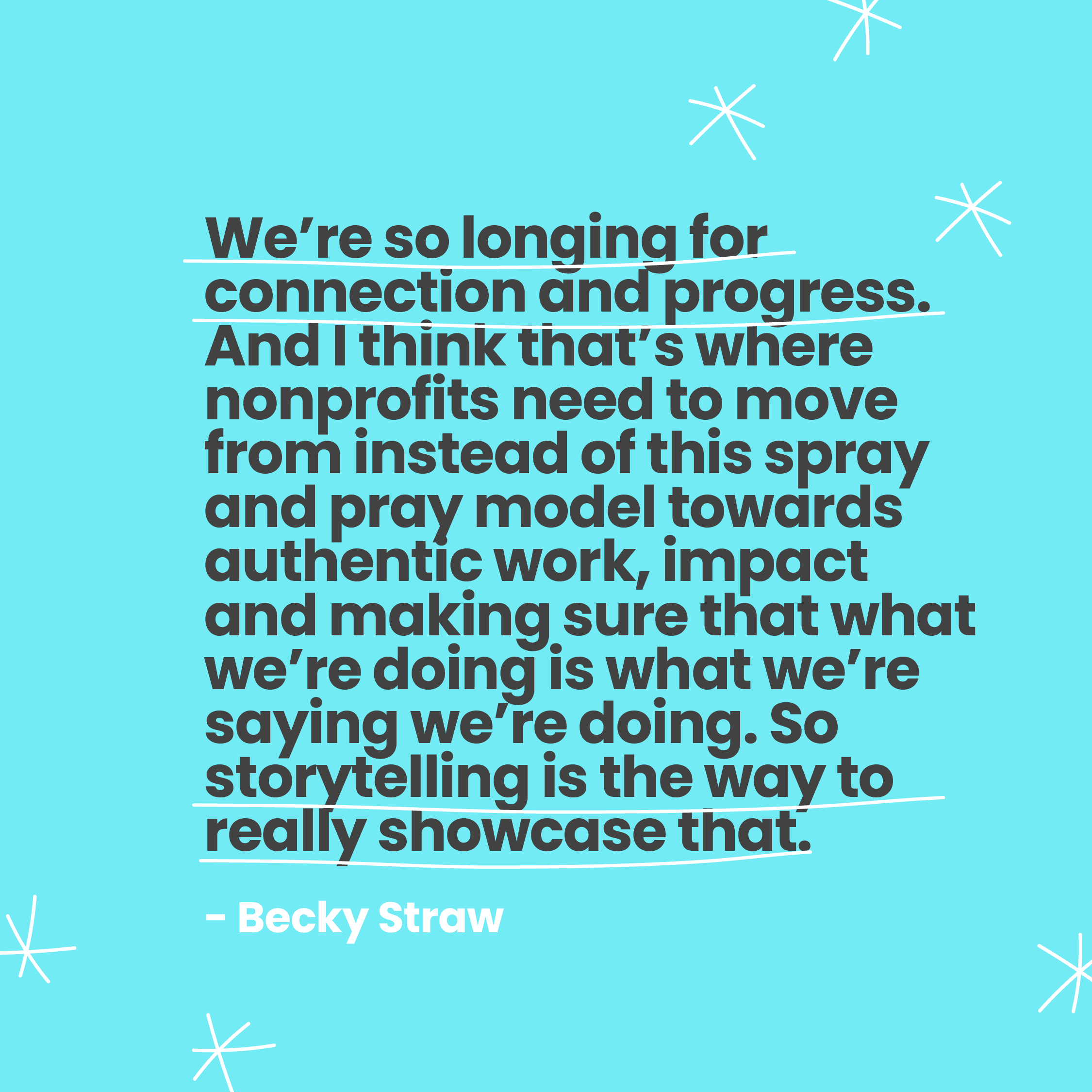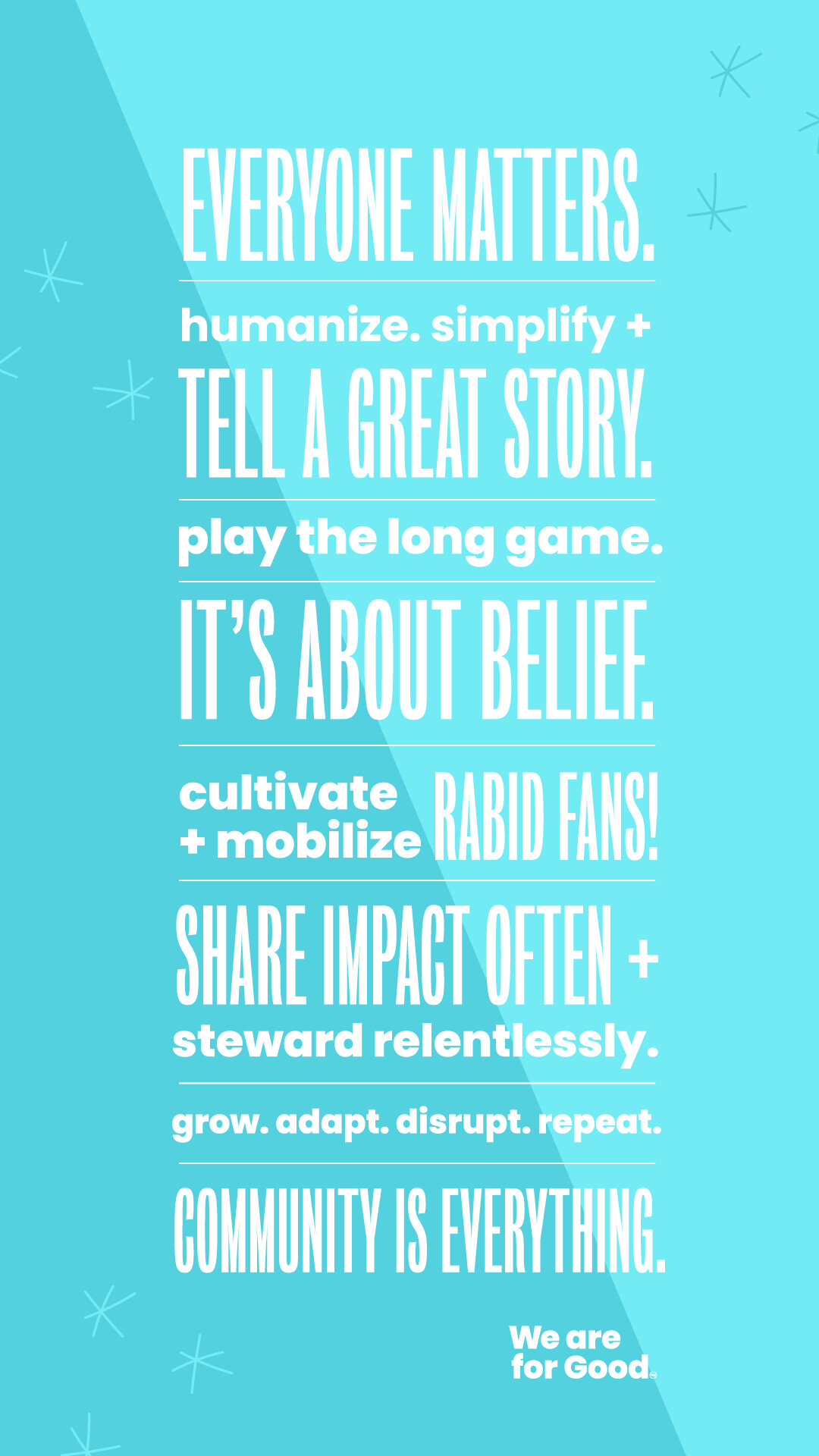277. LIVE! from Phoenix: Build Better Storytelling - Dulari Gandhi, Kimberly O'Neil, Becky Straw, and Cheryl Miller Houser
Listen to this episode
Overview
Join Jon + Becky for this Friday's episode alongside a panel of legit experts on Building Better Storytelling. We talk about shifting the lens on the storylines we share, the words we use, and leaning into authentic and ethical storytelling. Special thanks to Virtuous for convening this discussion with our panel experts: Kimberly O'Neil (The Giving Blueprint), Chery Miller-Houser (Creative Breed), Dulari Gandhi (D. Gandhi Communications), Becky Straw (Adventure Project) 👊
The Build Better Series
Today’s conversation is a LIVE replay of one of the dynamic panel conversations at the 2022 Responsive Nonprofit Summit presented by Virtuous. To get access to bonus resources from all these sessions, visit our RNS page at weareforgood.com/rns.
Today’s Guest Panelists
Kimberly O’Neil, The Giving Blueprint
Cheryl Miller Houser, Creative Breed
Dulari Gandhi, D. Gandhi Communications
Becky Straw, The Adventure Project
“When we have people that are sharing these narratives on our behalf, and we’re not correcting them, then that means the narrative continues in a way that actually is harmful to the work that we’re doing. ”
Episode Transcript
Download Full Episode Transcript
Episode Overview
Tone setting (2:00)
Storytelling basics: Cheryl’s framework (6:43)
1. Be Human.
2. Show Struggle.
3. Inspire Through Uplift.
Developing inclusive narratives (11:30)
Defining ethical storytelling (16:00)
How The Adventure Project tells stories of their global community ethically (19:00)
Shifting donor thinking around narratives (25:00)
Activation: where and how you should be telling these stories (32:00)
Encapsulating joy in your storytelling (38:00)
Kimberly’s One Good Thing: Remember self care. (41:00)
Cheryl’s One Good Thing: Focus on joy. (41:00)
Becky’s One Good Thing: Have the bravery of listening. (42:00)
Dulari’s One Good Thing: When we center ourselves on what we're actually trying to do, it tends to work out very successfully in every realm. (42:00)
Powerful quotes
“So tell a story about someone we care about. And then bring your audience into an emotional journey through that person.” -Cheryl
“People take in information 19 times better when it's in service to a narrative story.” -Cheryl
“I think a lot of times when we hear, as Cheryl was saying, you know, to share stories share those relatable stories, they don't have to be the darkest, and the deepest places of hurt. And we need to temper that. So that we are not creating a narrative for the community.” -Cheryl
“At its heart, what ethical storytelling is, is that it centers the person that is most benefiting from the programs of your nonprofit.” -Dulari
“If you're always viewing your beneficiaries from that lens, what ethical storytelling does is it centers those folks. And I think it's always good to remember that our nonprofits don't exist unless we're working towards helping folks that their stories become the center of what your organization is all about.” -Dulari
“Sometimes I think we misuse the term equity when we're when we're telling stories or trying to share narrative. But if we're really focused on equitable practices, and we're practitioners of the work, it also means that there's an opportunity right then and there to ensure that every person, every board member, every employee, every volunteer understands the language that should and should not be used.” -Kimberly
“When terms change, it's important that we educate people on why. And if people are not willing to participate and understand the importance, we need to rethink what they mean to the community of practitioners in the organizations that were leading and serving.” -Kimberly
“Donors actually don't want to be wrong. Donors do not want to look as if they are not knowledgeable about what's going on.” -Kimberly
“What I mean by journalistic integrity, I mean, it's like fact checking, making sure what they said is correct, recording the interview so that you get the quotes, right, and really asking open ended questions, so that the story is filled in, in their own voice. I think that's so important.” -Becky S
“When we have people that are sharing these narratives on our behalf, and we're not correcting them, then that means the narrative continues in a way that actually is harmful to the work that we're doing. “ -Kimberly
“Are we making sure we're training folks to talk about the way our we do our work in a consistent way?” -Dulari
“Your storytelling and your data should go together.” -Dulari
“We're so longing for connection and progress. And I think that's where nonprofits need to move from instead of this spray and pray model towards authentic work and impact and making sure that what we're doing is what we're saying we're doing. So storytelling is the way to really showcase that.” -Becky S
Connect with the amazing panelists! 👇
Kimberly O’Neil
LinkedIn / Website / Twitter / Instagram / Podcast Episode
Becky Straw
LinkedIn / Website / Instagram / Twitter / Podcast Episode
Cheryl Miller Houser
LinkedIn / Website / Instagram / Podcast Episode
Dulari Gandhi
LinkedIn / Website / Instagram / Podcast Episode













